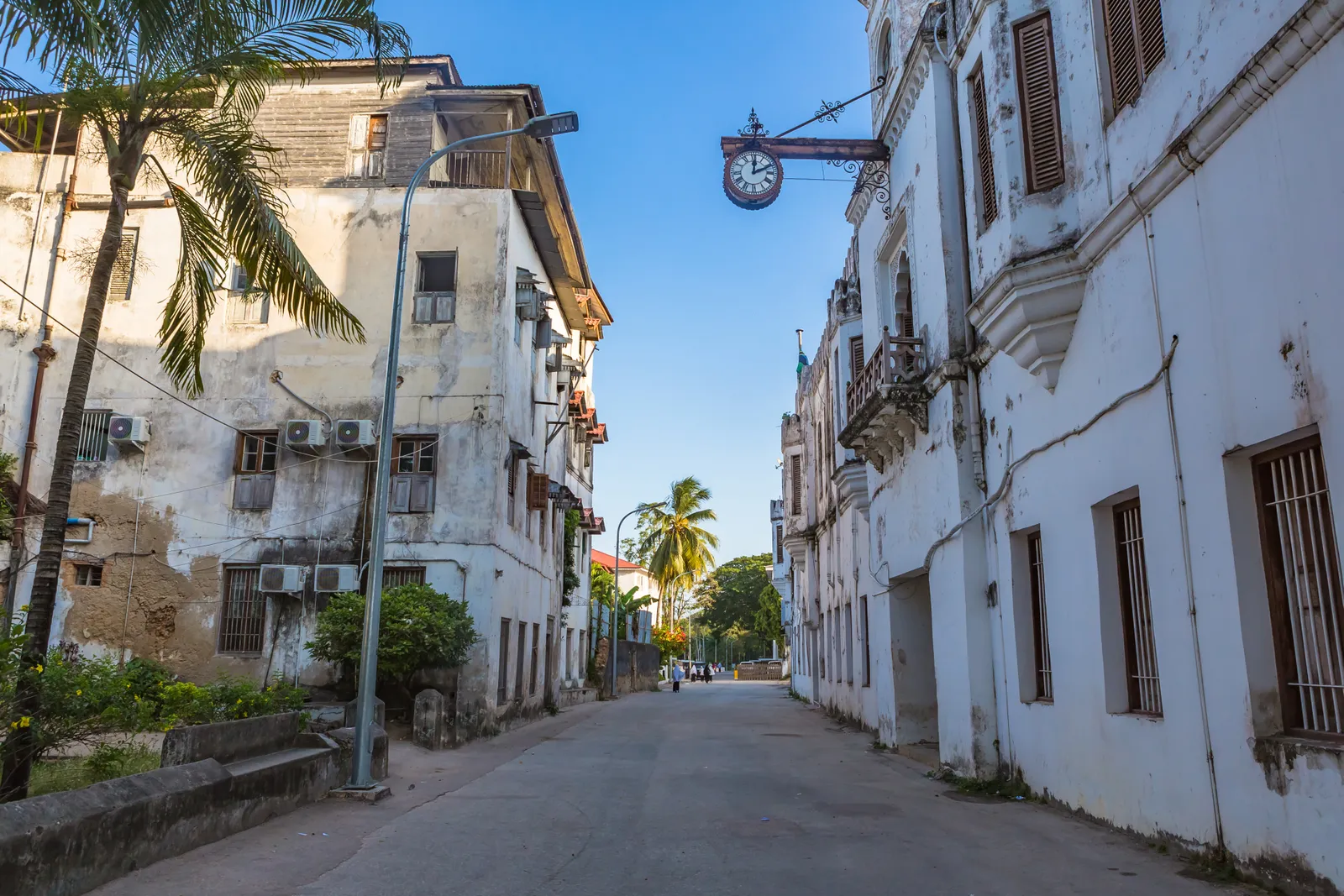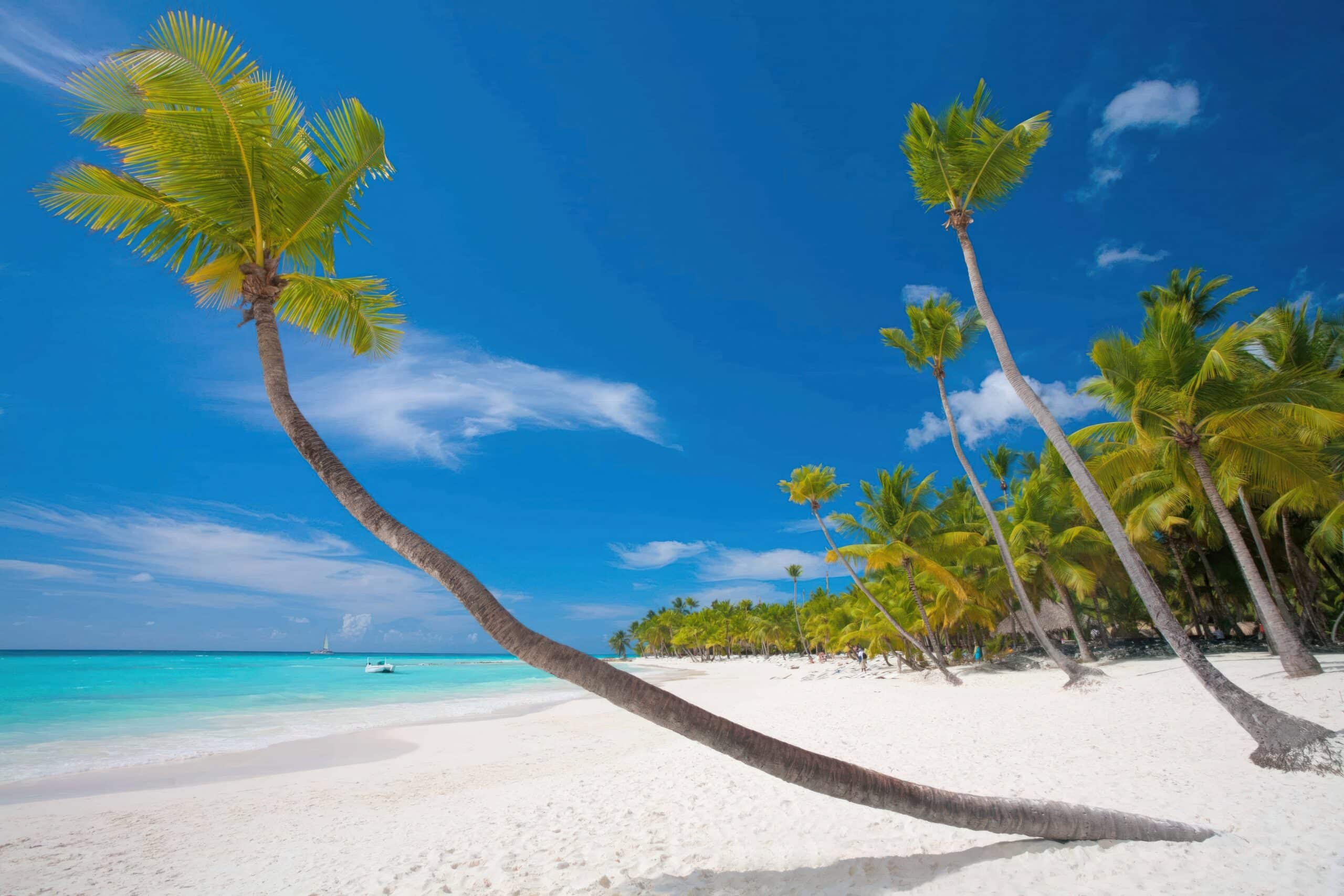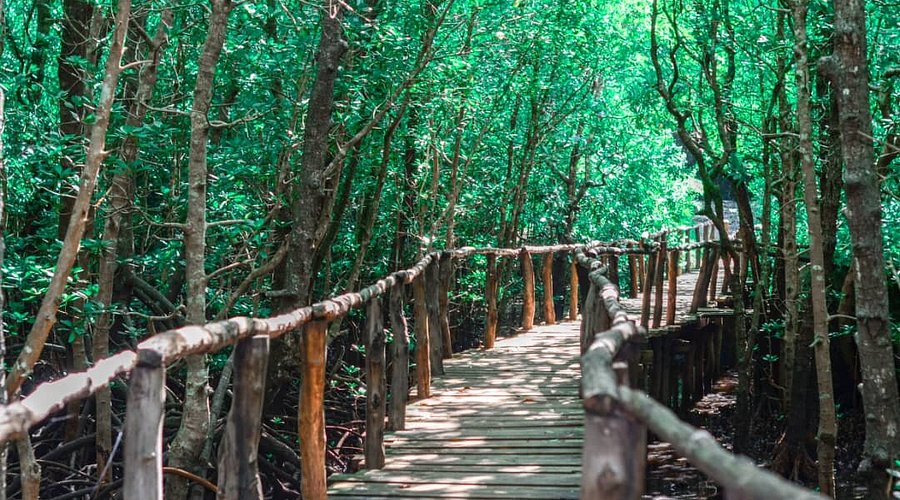About Zanzibar
Zanzibar, known as the 'Spice Island,' offers a perfect blend of African, Arab, and Indian cultures. This tropical paradise features pristine white sand beaches, crystal-clear turquoise waters, and a rich history dating back centuries. Stone Town, a UNESCO World Heritage site, showcases stunning architecture and narrow winding streets filled with markets, mosques, and palaces. The island is famous for its spice tours, where you can see and taste cardamom, cinnamon, nutmeg, and vanilla growing in their natural habitat.
Location & Geography
The Zanzibar Archipelago consists of numerous small islands and two large ones: Unguja (the main island, referred to as Zanzibar Island) and Pemba Island. Located 25-50 kilometers off the coast of Tanzania, the archipelago covers approximately 2,461 square kilometers. The warm Indian Ocean waters surrounding Zanzibar are perfect for swimming, snorkeling, and diving, with coral reefs teeming with marine life. The island's economy has historically been based on spice cultivation, particularly cloves, which were introduced by Arab traders in the 19th century.
Conservation Efforts
Zanzibar is committed to marine conservation with several protected areas including the Jozani-Chwaka Bay National Park, home to the endemic Red Colobus monkey. The island also participates in turtle conservation programs, protecting nesting sites for green and hawksbill turtles along its beaches. Coral reef conservation initiatives work to protect the delicate marine ecosystems that support both tourism and local fishing communities.
History & Significance
Zanzibar has a rich and complex history spanning over a millennium. The islands were first settled by Bantu-speaking peoples, followed by Persian traders in the 10th century. Arab influence grew significantly, and by the 19th century, Zanzibar had become the center of the East African slave trade under Omani rule. The Sultan of Oman moved his capital to Stone Town in 1840, making Zanzibar a major trading hub. The islands became a British protectorate in 1890 and gained independence in 1963, uniting with Tanganyika in 1964 to form Tanzania.
Climate & Weather
Zanzibar enjoys a tropical climate with warm temperatures year-round, averaging 26-28°C (79-82°F). The island experiences two distinct seasons: the dry season and the wet season. The climate is moderated by the Indian Ocean, creating pleasant sea breezes that provide natural cooling.
March to May (long rains) and November to December (short rains). Expect afternoon showers and high humidity.
June to October - ideal for beach activities with minimal rainfall and lower humidity.
Getting There
Zanzibar is easily accessible by air and sea. Julius Nyerere International Airport in Dar es Salaam connects to Abeid Amani Karume International Airport in Zanzibar with multiple daily flights (20 minutes). International flights also arrive directly from Dubai, Nairobi, and European cities. Ferry services operate daily between Dar es Salaam and Stone Town (2 hours).
Transportation Options:
- Direct international flights to Zanzibar Airport
- Domestic flights from Dar es Salaam (20 minutes)
- Ferry from Dar es Salaam to Stone Town (2 hours)
- Private charter flights from other Tanzanian destinations
- Cruise ship arrivals at Stone Town port
What to Expect
Expect a sensory journey through spice plantations, historic Stone Town's narrow alleys, and pristine beaches. You'll encounter friendly locals, vibrant markets, and a unique blend of cultures. The pace of life is relaxed, perfect for unwinding. Beach activities dominate the northern and eastern coasts, while cultural experiences are concentrated in Stone Town and rural areas.
Best Activities:
- Spice plantation tours with tasting sessions
- Stone Town walking tours and architecture exploration
- Snorkeling and diving at Mnemba Atoll
- Dhow sailing at sunset
- Beach relaxation at Nungwi and Kendwa
- Jozani Forest monkey watching
- Traditional cooking classes
- Prison Island giant tortoise visits
Photography Tips:
- Golden hour shots of Stone Town's rooftops and minarets
- Underwater photography at coral reefs
- Spice plantation macro photography
- Traditional dhow boats against sunset skies
- Street photography in Darajani Market
- Red Colobus monkeys in natural habitat
- Architectural details of carved doors and balconies
Cultural Information
Zanzibar's culture is a fascinating blend of African, Arab, Persian, and Indian influences. The majority of the population is Muslim, and Islamic customs are deeply respected. Swahili is the primary language, though Arabic and English are widely spoken. Traditional music includes Taarab, a poetic musical form that combines Arabic, Indian, and African elements. The island is famous for its intricate henna art, traditional dhow building, and spice-infused cuisine.
Safety & Guidelines
Zanzibar is generally safe for tourists, but standard precautions should be taken. Avoid displaying expensive items, use reputable tour operators, and respect local customs. Swimming conditions are generally safe, but be aware of tides and currents. Malaria prophylaxis is recommended, and sun protection is essential due to strong tropical sun.
Important Guidelines:
- Dress modestly, especially in Stone Town and rural areas
- Remove shoes when entering mosques
- Ask permission before photographing people
- Bargain respectfully in markets
- Respect Ramadan customs if visiting during this period
- Use reef-safe sunscreen to protect marine life
- Support local communities by buying authentic handicrafts
Quick Facts
Duration
3-7 days
Group Size
2-15 people
Rating
4.8/5.0
Best Time
June to October (dry season) for best weather, December to March for fewer crowds
Location
Zanzibar Archipelago, Indian Ocean
Temperature
26-28°C (79-82°F) year-round
Difficulty Level
Easy - suitable for all fitness levels and ages
What to Pack
- Lightweight, breathable clothing
- Modest clothing for Stone Town visits
- Swimwear and beach accessories
- Reef-safe sunscreen (SPF 30+)
- Insect repellent with DEET
- Comfortable walking shoes
- Flip-flops or sandals
- Sun hat and sunglasses
- Waterproof camera case
- Personal medications
- Cash for local purchases
Cost Information
Park Fees
Jozani Forest: $10 per person. Marine parks: $5-15 per person depending on activity.
Estimated Budget
Budget: $50-80/day, Mid-range: $100-200/day, Luxury: $300+/day per person including accommodation, meals, and activities.
Highlights
Wildlife & Nature
While Zanzibar is primarily known for its marine life and beaches, the island hosts several unique species. The Jozani Forest is home to the endemic Zanzibar Red Colobus monkey, found nowhere else on Earth. Marine life is abundant, with dolphins, sea turtles, and hundreds of fish species inhabiting the coral reefs. The mangrove ecosystems support various bird species and serve as nurseries for marine life.
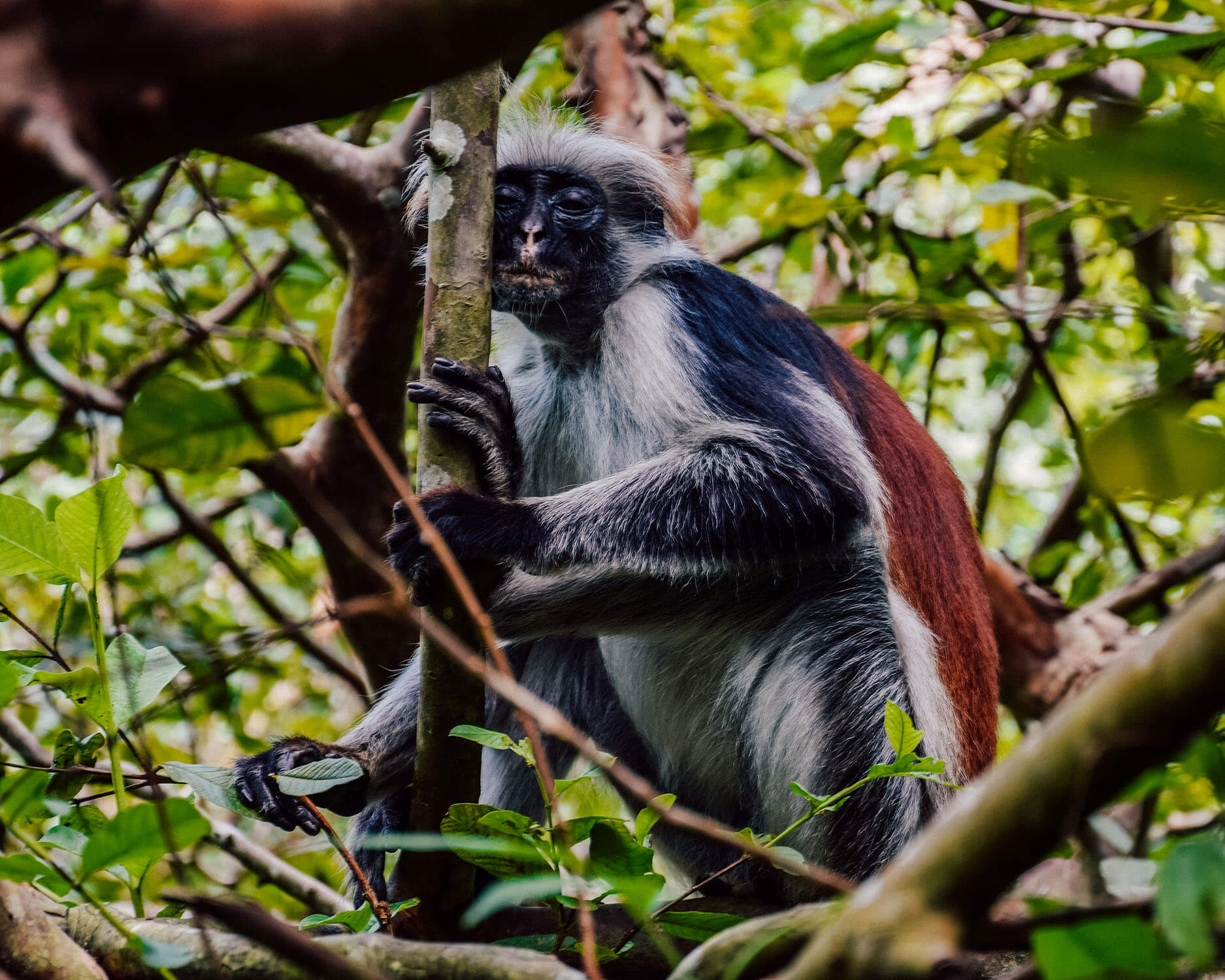
Red Colobus Monkey
Endemic to Zanzibar, these endangered primates are found only in Jozani Forest. With distinctive red coloring and no thumbs, they're perfectly adapted to their forest habitat.
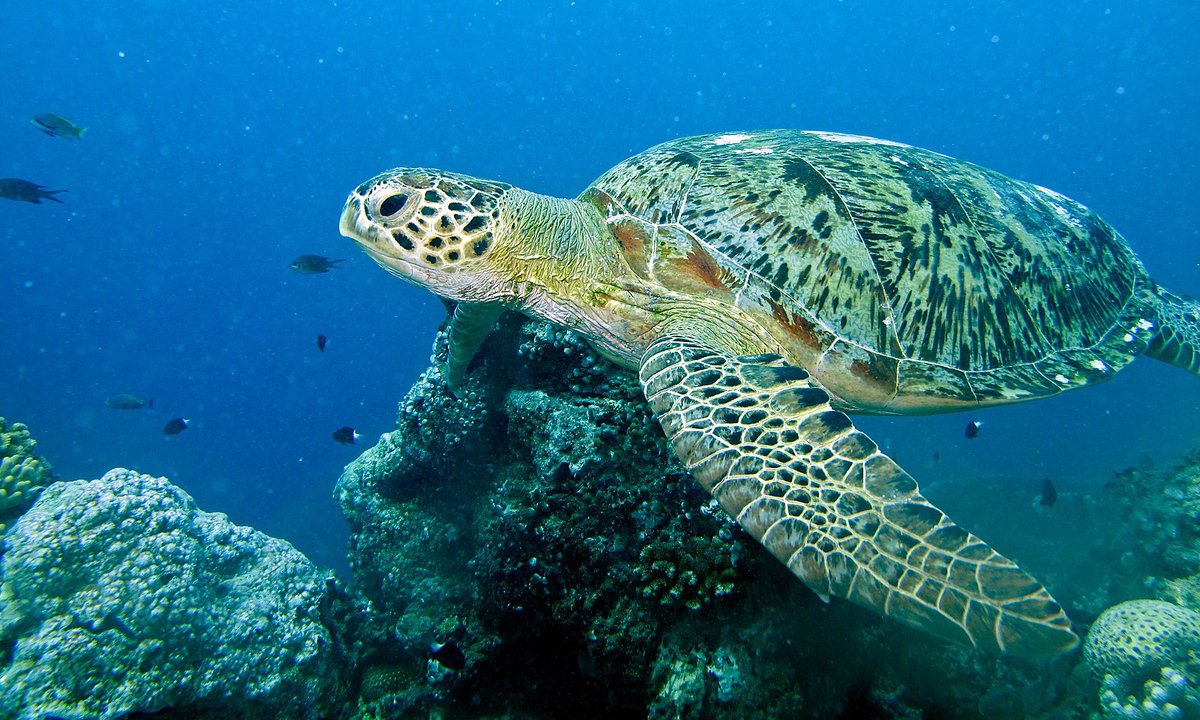
Green Sea Turtle
These magnificent creatures nest on Zanzibar's beaches during nesting season. Adults can weigh up to 200kg and live over 80 years.
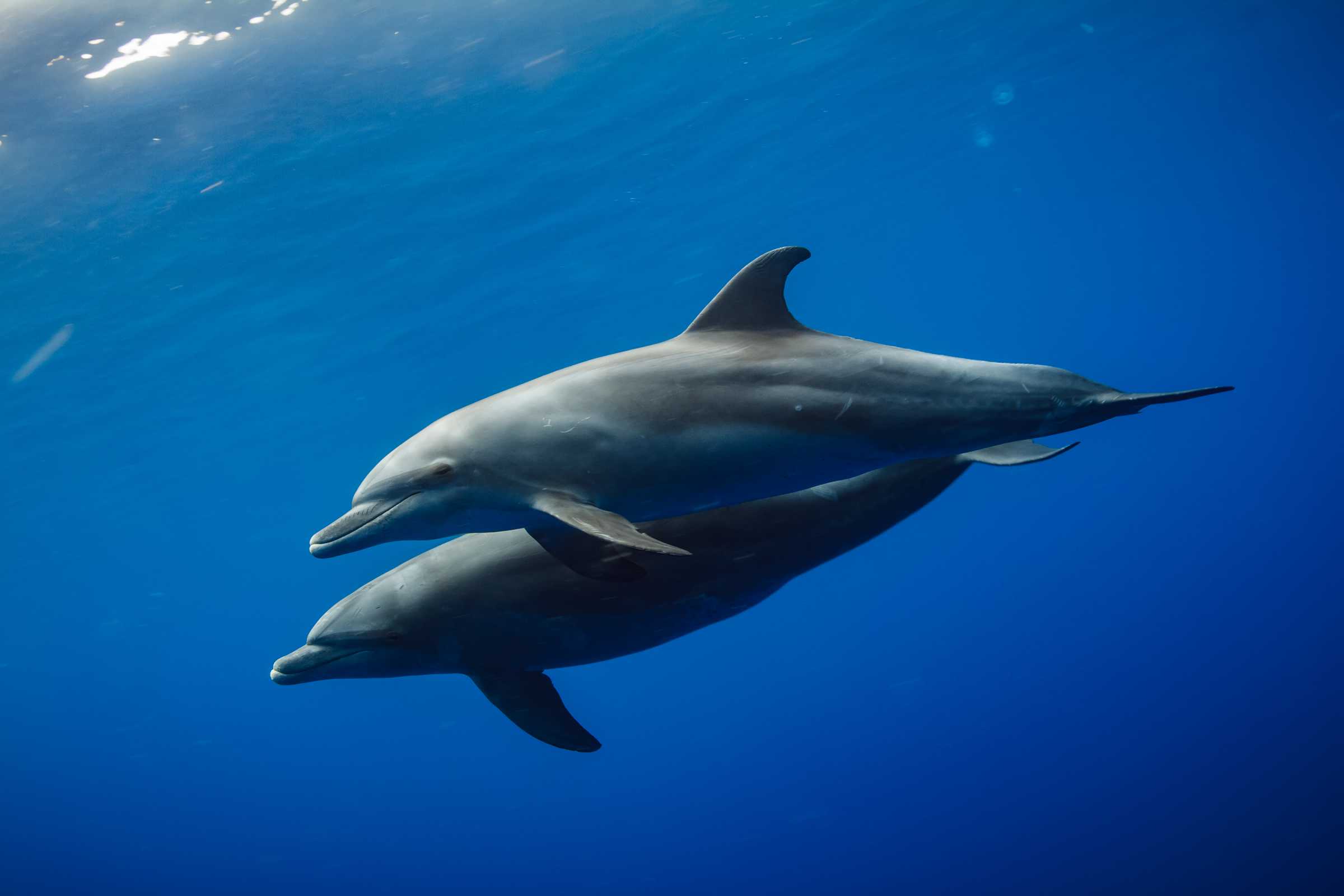
Bottlenose Dolphins
Playful and intelligent marine mammals that can be spotted year-round in Zanzibar's waters, often approaching boats and swimmers.
Must-Visit Attractions
Zanzibar's attractions range from historical and cultural sites to natural wonders. Stone Town offers a journey through time with its UNESCO World Heritage architecture, while the beaches provide world-class relaxation and water sports. The spice plantations offer educational tours about the island's agricultural heritage, and Jozani Forest provides unique wildlife encounters.
Accommodation Options
Zanzibar offers accommodation for every budget and preference, from luxury beach resorts and boutique hotels in Stone Town to budget-friendly guesthouses and backpacker hostels. Many properties blend traditional Swahili architecture with modern amenities, offering unique cultural experiences alongside comfort.
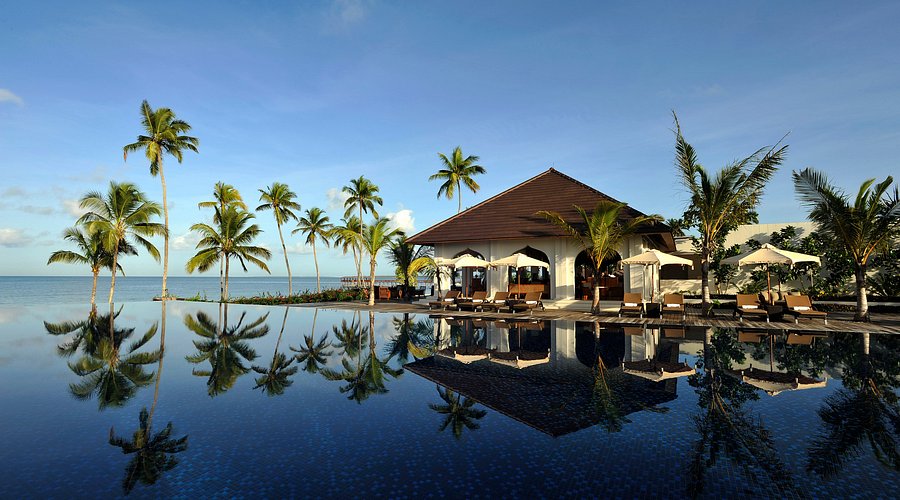
The Residence Zanzibar
Ultra-luxury beachfront resort with private villas, world-class spa, and exceptional dining experiences
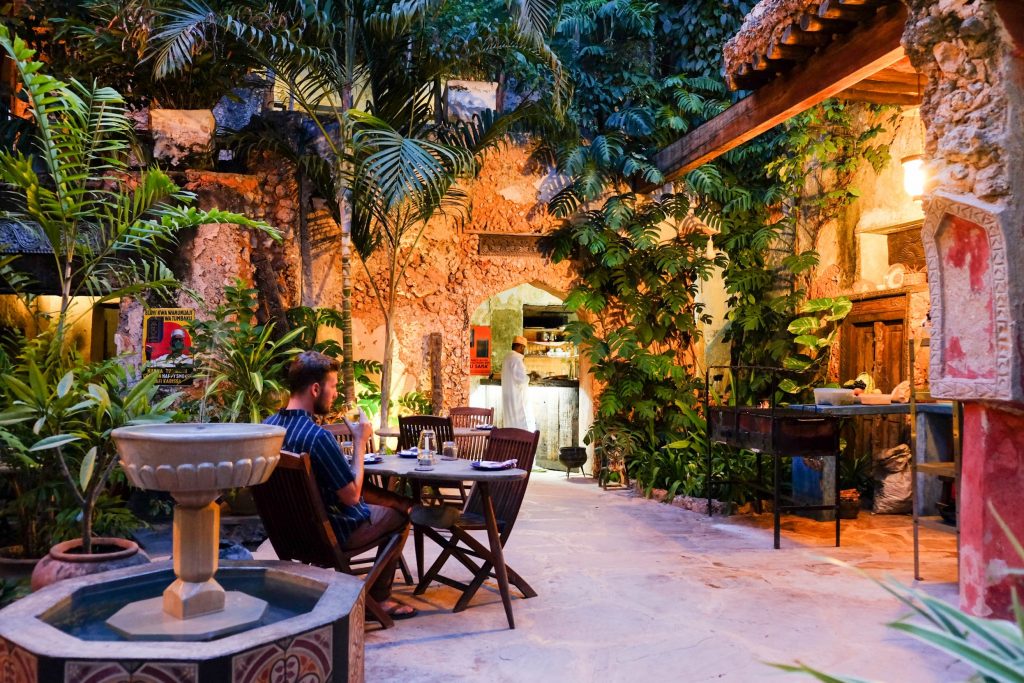
Emerson Spice Hotel
Boutique hotel in the heart of Stone Town featuring traditional Swahili architecture and rooftop restaurant
Ready to Explore Zanzibar?
Join us for an unforgettable safari experience in one of Tanzania's most spectacular destinations
